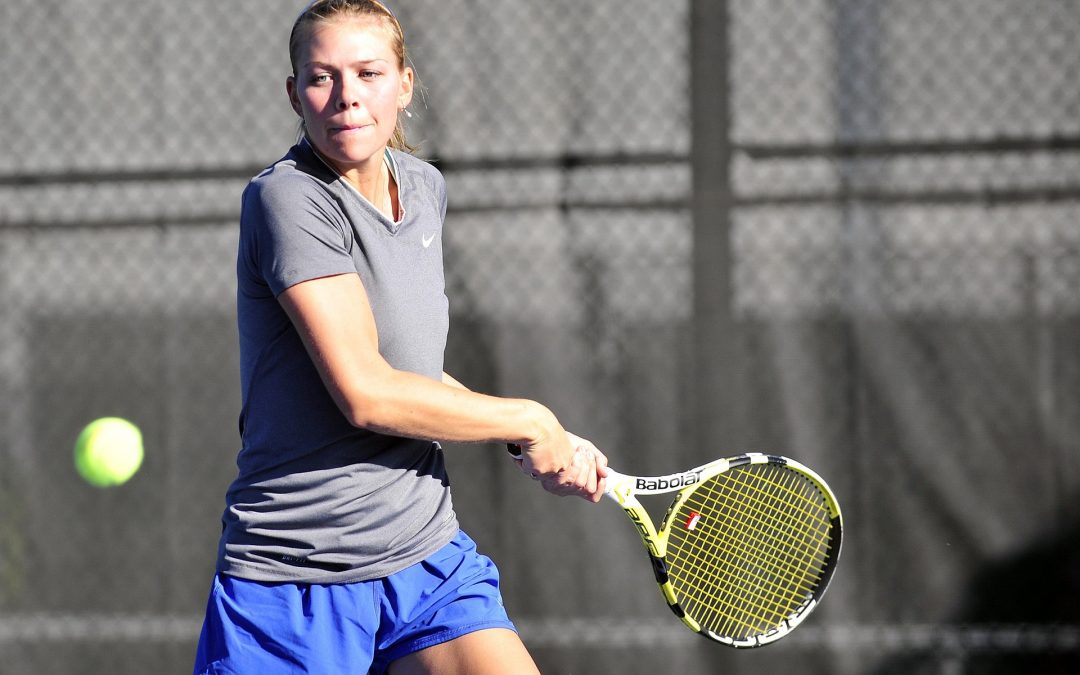Undertraining and overtraining can lead to the opposite of what an athlete is striving for and can hinder performance. In Matt Kuzdub’ s (2017) excellent blog, Overtraining and undertraining in tennis: can both lead to injury, he talked about how physically under and overtraining can lead to injury. Matt discusses great research on managing training loads, the effects of under and overtraining, and how to tell if an athlete is under or overtraining and how to mitigate injury and illness.
So, what is going through the mind of an athlete who is undertraining or overtraining?
Where undertraining comes from:
There are many reasons for undertraining – more skilled athletes usually undertrain due to lack of confidence and anxiety around fear of not winning and winning. However, motivation is a top reason for less skilled athletes who undertrain.
In our society, most particularly in sports, 95% of young athletes and a large percentage of adults are trying to be perfect. Most of them know there’s no such thing as perfect but they keep trying to attain ‘it’ (whatever it is). When kids find themselves in a position of not being perfect or not knowing if they will perform perfectly, they’d rather not give it their all and lose than give it their all and not win. In most cases, for that to happen, they need an excuse for not winning. For example, I have not been practicing much so it makes sense that I would lose. This way they have what they think is a fairly good reason for not winning.
Perfectionistic syndrome
The amount of kids I see with this right now is horrific. If they are not getting all A+’s and winning every time they perform, something is wrong with them. The amount of pressure this puts on kids, in and of itself, makes it virtually impossible for kids to perform at all. Perfectionism is all or nothing. If a kid is not ‘all’, they think they may as well be ‘nothing’. In my experience, kids don’t want to give it all, lose, and feel humiliated in front of their peers.
But perfectionism sets kids up for failure. Many times, their goals are not realistic so there’s no way to attain them. Kids won’t always get A+’s and can’t always win. Kids don’t learn how to deal with less than perfect tendencies or losing. In sports and in life nothing is perfect and you don’t always win. You can’t and you can’t expect that of yourself.
Where overtraining comes from:
I’ve seen it time and time again. When an athlete is afraid of losing, they will overtrain. You might say or hear – “I put in more time on the court/field/track/slopes than anyone else.” And this typically le comes with not improving and they keep at it. Overtraining can happen over time and/or can happen just before a competitive event. Clients think – if I put in a lot of time, I will win. What’s really going on is the client is afraid of losing. The client is lacking confidence, worrying, overthinking and getting nervous. Instead of overtraining, the client needs to deal with those mental challenges.
It starts in our mind
As Matt so eloquently put it, under and overtraining can lead to injury. He is absolutely right but the missing piece in this scenario is the fact that under and overtraining leading to injury starts in our mind – fear of winning and fear of losing.
In order to deal with under and overtraining, an athlete needs to develop a solid mental game plan. Sports is all about working smarter, not harder. Sports is 100% mental and 100% physical. It takes a combined approach to be the most effective athlete.
What can you do as a coach or parent to help avoid undertraining and overtraining?
- Help kids set realistic outcome goals. For example you might hear, I want to win that match.
- Then, help kids set 2-3 realistic process goals that move them toward the outcome they desire. For example, to win this match I need to use my pre-serve routine every time I serve, I need to move my feet and I need to rest after every point.
- Emphasize progress, not results. For example you might say, your racquet height on the backhand side is looking much better.
- Encourage them to point out (laugh about) vulnerabilities. For example, I totally missed that easy volley because I wasn’t moving my feet.
Undertraining and overtraining can be easily avoided. Just make sure there is a mental game plan and more importantly, make it part of the routine.
About Dr Michelle Cleere:
Mind Expert
In her own private practice as an elite performance expert, she helps top athletes, musicians, and executives in competitive fields unlock the power of the mind and create the mental toughness to be the best. Having struggled most of her life with her own performance hurdles, she is driven by not wanting others to experience the same battles. Dr. Michelle’s extensive academic background, which includes a PhD in Clinical Psychology and a Masters in Sport Psychology, allows her to help clients deal with performance anxiety, gain more confidence, and build resilience. As many clients attest, their experience with Dr. Michelle is exactly what they needed and more than they expected – it was life changing.
Author and Speaker
In addition to personal coaching, Dr. Michelle takes on many roles – a best-selling author, athlete, national speaker and teacher. Dr. Michelle’s bestseller, Beating the Tennis Demons, helps professional, college and juniors develop practical skills to gain more control over competitive environments and mitigate the interruption in play to overcome intense odds and defeat adversity. Dr. Michelle developed simple and effective tools to that used by coaches around the world. She’s presented with PTR, USPTA, and WTCA. She’s written for Tennis Pro Magazine, ADDvantage Magazine, Tennis Industry Magazine and National Senior Women’s Tennis Association.
Visit Dr Michelle’s website: drmichellecleere.com

